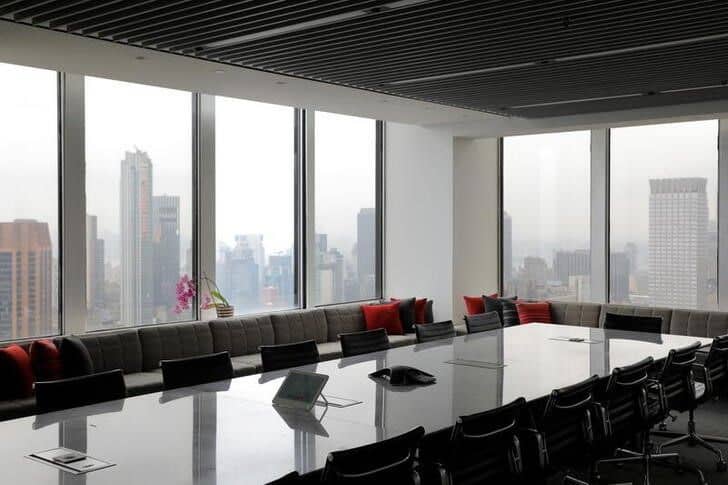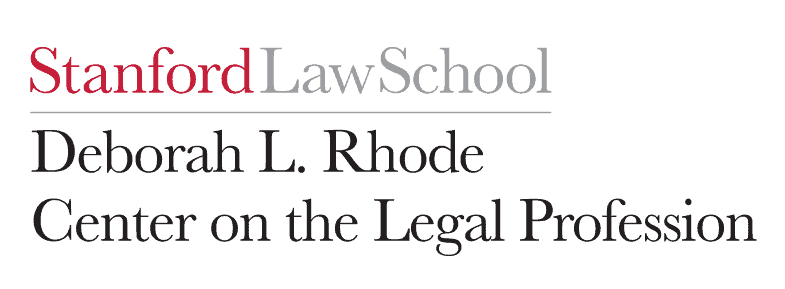On September 21, the Center on the Legal Profession and the Stanford Legal Design Lab co-hosted a gathering, titled CLP + Legal Design Lab = Student opportunities in A2J + Design + Tech (video here), to highlight the multiple hands-on student opportunities offered over the next twelve months. The gathering, held in the law school’s Crocker Garden and within the University’s Covid protocols, was well attended by students within and beyond the law school and curious about projects focused on access to justice and leveraging design and technology.

Professor Nora Freeman Engstrom, co-director of the Center on the Legal Profession, kicked off the event with a call to action on the access to justice crisis in the United States. The event, featured short speeches via Zoom by the Honorable Bridget McCormack, Chief Justice of the Michigan Supreme Court, and Ronald S. Flagg, the President of the Legal Service Corporation. Both Chief Justice McCormack and Mr. Flagg spoke passionately about the American access to justice crisis and stressed that the magnitude of the crisis requires bold action aimed at truly systemic change. Each noted, echoing a line often repeated by CLP’s Founder Deborah L. Rhode, that the American promise of equal justice under the law does not reflect the reality for most Americans facing legal problems and turning to the justice system for help. As Chief Justice McCormack said, “I am here to tell you that disruption is what is needed right now in our legal system.”

Chief Justice McCormack and Mr. Flagg framed the issue as one of systemic challenge rooted not only in easily-recognizable issues such as underfunding, bureaucracy, and poverty, but also in the institutional design of law, the practice of law, and the legal profession. Chief Justice McCormack highlighted the challenges facing the approximately 80% of consumers who lack legal representation and are trying to access the legal system to resolve their justice needs and act upon their democratic rights, “It’s hard to imagine another public good that would prohibit you from accessing it if you couldn’t afford [someone to help you] access it. [Imagine if we said] ‘You can’t use that highway unless you can afford a highway helper to show you how to get on the highway.’ We wouldn’t stand for that.” Mr. Flagg agreed, noting:
Our judicial and administrative systems for enforcing those rights were largely built by lawyers, on the assumption that people using the systems will be represented by lawyers. And in many categories of life altering cases that assumption is simply false. In family law cases, in many jurisdictions across the country, less than 10% of the litigants are represented. Even more unfairly, in eviction cases in many jurisdictions over 90% of tenants are unrepresented while over 90% of landlords are represented.
The speakers noted the Covid-19 pandemic exacerbated many of the challenges already endemic in the civil justice system, increasing to the point of impossibility physical access to the courts, increasing the difficulties for people trying to go it alone, and increasing the need for virtual and other technology-based solutions.
Despite this bleak picture, both Chief Justice McCormack and Ron Flagg exhorted the students to take the opportunity of their position at Stanford and, for the law students in attendance, of a legal education, to create the disruption so needed to launch impactful systemic change. Chief Justice McCormack said, “If law schools are only building bespoke lawyers ascending to bespoke firms to serve the elite clients who can pay those bespoke lawyers they’re not going to be part of the solution. The work of the [Stanford policy labs], in my view, is how we will make transformational change happen. By your faculty and all of you engaging directly with stakeholders and bringing the university’s expertise and your excellent ideas and innovation to the table.”

After the rousing calls to action from Chief Justice McCormack and Mr. Flagg, Professor David Freeman Engstrom, Co-Director of CLP, introduced the policy lab leaders to provide more detail on the projects and answer students’ questions. Mark Chandler JD ‘81 and until recently the Chief Legal Officer at Cisco, has joined CLP as a Fellow and is leading, along with Professor Engstrom and Margaret Hagan, the policy lab titled: Unlocking Technology to Promote Access to Justice: A Pilot to Reform Civil Justice Filing Systems. The policy lab will serve as a launch for a longer-term project which seeks to develop standardized and simplified formats for use by self-represented litigants and legal services organizations in simple but high need civil justice areas (domestic violence, eviction, consumer debt). The policy lab students will be doing the initial needs finding and strategy planning for the project, conducting stakeholder interviews, identifying high potential jurisdictions and civil justice areas, and preparing for a convening of stakeholders during winter quarter.
Chandler recalled getting interested in access to justice as a law student, inspired by “my mentor Deborah Rhode.” As General Counsel of Cisco, he was a trailblazer in developing and using legal technology, but when he and his colleagues volunteered in legal aid offices, he found they were “in the dark ages of technology,” with lawyers filling out forms when they could be helping more clients. Invoking the example of a 40 year-old single mother with two kids seeking a protective order for domestic violence in California, he pointed out that even the government’s own website for self-represented litigants made the process seem complicated. Chandler pointed to the need for more Turbo Tax-like solutions to help self-represented litigants, and recalled his discussion with Flagg about whether to leave Cisco and pursue this project. “I asked him ‘Is it impossible?’ and he said ‘Not impossible, just very hard.,’’ Chandler recounted. And Chandler closed by quoting President John F. Kennedy’s famous challenge in the context of going to the moon—that we tackle challenges “not because they are easy, but because they are hard, because that goal will serve to organize and measure the best of our energies and skills, because that challenge is one that we are willing to accept, one we are unwilling to postpone, and one which we intend to win.”

Margaret Hagan, Director of the Stanford Legal Design Lab, presented the Lab’s autumn policy lab Justice By Design: Eviction. The policy lab is a continuation of the ongoing eviction work Margaret and her team have led since 2018, work that has only become more pressing during the pandemic. The class focuses on creating, evaluating, and scaling new interventions to prevent eviction & mitigate the harms they do to families, health, and communities. This fall, the policy lab client is the NAACP. Students will work on 2 particular issues that the NAACP is facing, as the organization works to prevent eviction with an innovative, community-driven pilot program in South Carolina: (1) How can courts be more involved in mitigating the harms caused by eviction?; and (2) Can we train large groups of community members to do ‘legal first aid’: spotting legal issues and referring people to services?
The event concluded with refreshments and much discussion among presenters and attendees.

